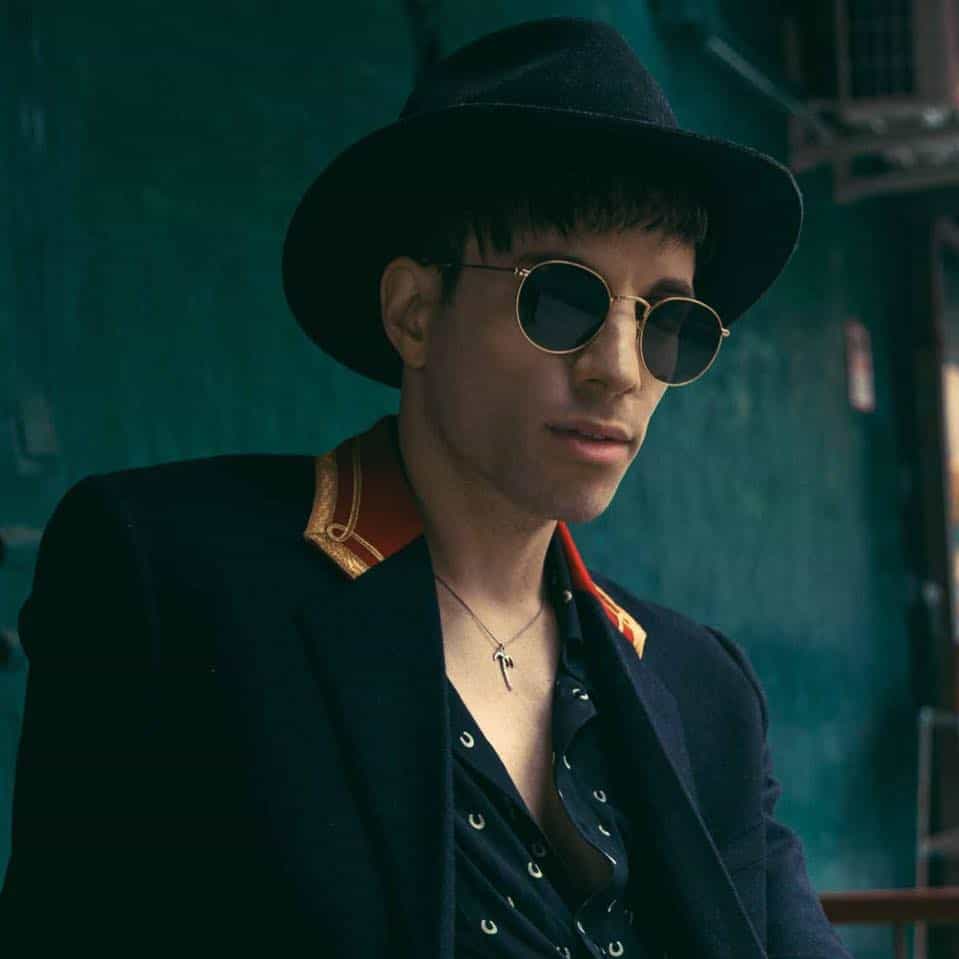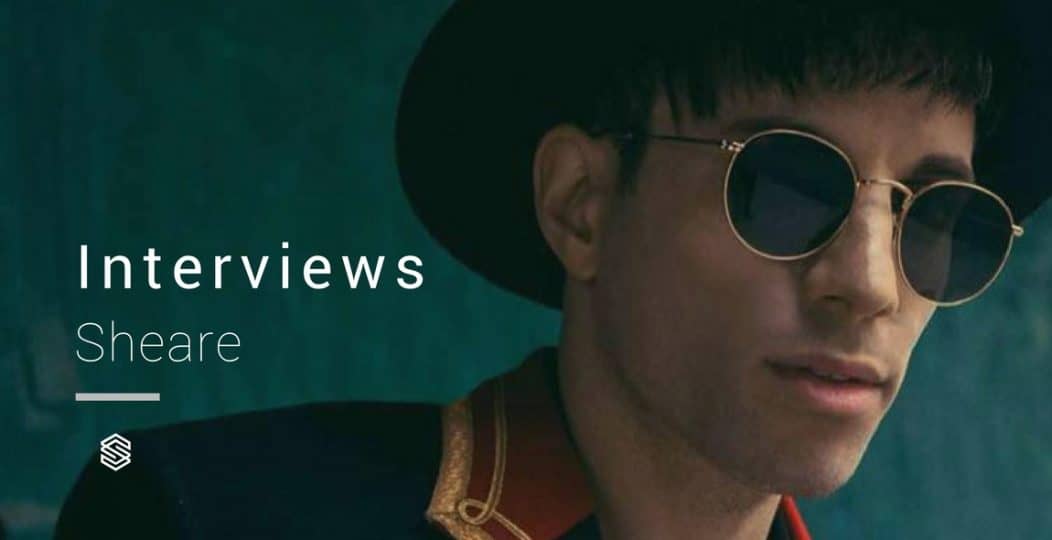Interview Date: 10 July. 17
Rawtek's Music: Listen Genres: Pop, Rock, Indie

In today’s electronic landscape, the need to find ones own sound is more important than ever to stand out from the sea of music that is being released everyday. New York based producer, singer, and songwriter, Sheare, has over come this problem with ease. His Indie Pop productions feature none other than himself on the vocals of his tracks, giving him the ultimate creative freedom. We had a chance to catch up with this versatile musician and find out what goes into creating one of his Indie Pop gems.
SoundShock: What made you want to start making music and get into production/ singing songwriting? How have things changed since then?
I kind of started writing/producing as a cheaper alternative to therapy, ha! I think like many artist I have a strong propensity for sadness and songwriting just felt like a natural remedy to express how I was feeling. I started producing really by default as I didn't want to rely on anyone to be abel to get the songs out as I usually start by building a try and then write the song around it.
Electronic producers have a hard time with music theory. Either they don’t know what to learn or how exactly to apply the theory. If you use theory when writing your tracks, what specific parts do you use and what would you topics do you feel producers should know?
To be honest, I know very little about music theory myself. I'm very much a learn as I go producer/multi instrumentalist. I really take to instrumentation by ear.
Many producers that start out today just want to write the next big hit with a larger than life “drop.” Your music shows that you don’t need to have a “drop” to write a compelling track. What are some techniques that you use to keep your tracks interesting?
I think for me, If I wake up humming my own song without realize what it is, it's a good indication that I'm onto something. I really try to create as many hooks as possible. I try to make sure that the verse and pre chorus are as compelling melodically as the chorus.
Many electronic producers out there have little experience with music theory and are not traditional song writers (in the sense of live instrumentation, singing, and creating lyrics). This shows in their music as it usually does not have the emotion and human element that many timeless records have. This lack of emotion ultimately leads to a track that has a very short shelf life and is easily forgotten. Do you have any tips for producers that lack this traditional songwriting training and are looking to inject personality and emotion into their songs in order to write tracks that have a lasting shelf life?
I think there are some electronic producers who do manage to capture emotion through their music, it just seems few and far between. Snakehips for example, did a brilliant job with their song "Don't Leave." In general, I really believe if you can connect with people on an emotional level, you'll have far more staying power than songs that just end up being euphoric "of the time" party songs.
What is the hardest part of producing and how do you work around it?
For me, I think it's not letting your sounds get stale. It's amazing the inspiration that comes from downloading a new sample pack or VST.
"I really believe if you can connect with people on an emotional level, you'll have far more staying power than songs that just end up being euphoric "of the time" party songs."Sheare
For many it is easy to lose momentum and over listen to tracks when producing, resulting in unfinished tracks that never see the light of day. How do you keep the momentum, creativity, focus, and excitement of producing going throughout the process and finish ideas that you start
I've realized if I don't record the vocals on a song, it usually never sees the light of day. Really the vocal is everything. I can love a track and then record the vocal and feel like they are disjointed. I usually think the newest song I'm working on is the best one, until I live with it for a week or so. If after a week I still like the song, I usually keep it.
All your tracks contain beautifully well crafted lyrics that tell their own unique story. How do you approach this part of the song writing process.
Thank you! Usually I'm in a particular mind frame when I build a track (i.e happy/sad) and that kind of dictates what the song is going to be about emotionally and lyrically. On the Turbulence-EP I knew going into it that the general tone of the music was going to be darker.
Do you have any advice for electronic producers that are looking to start singing on their own songs or advice for producers that haven’t considered singing on their own music? Also, how does producing and singing on your records change the way you produce compared to just producing a track and using vocal samples?
It seems like it's less common now to do it all. The closest thing in electronic music we have where the producer also sings is the Chainsmokers....and even that dude admits he's not really a singer. That being said, I think it's something more people should be doing. It gives you a larger identity then just being a track artist.
Your tracks are filled with compelling melodies and counter melodies. How do you go about writing these melodies, so they leave a lasting imprint on the listener?
I really just try to give people as many opportunities to latch onto my melodies as possible and hopefully leave the listener with a lasting impression. I usually just kind of hum and sing throw in lyrics until I'm happy with the melody. I'm really methodical with not settling for a melody that isn't "catchy enough".
With so much of the music sounding similar out there right now, how do you develop a signature sound that is true to you and expresses your own unique voice?
I've come to terms and realized I'm never going to make music that is automatically gratifying in the sense that I don't really want to make "cool" music. Pop music has always been inherently deemed "uncool", so for me I think I just do what I do and am not concerned with following all the rules of what will work in the short term. Most of my favorite artists were kind of outliers in that sense, and while it took them longer to arrive to the mainstream consciousness, they are now objectively more successful than people who followed the trends musically.
Is there a technique or two that you consistently use when producing tracks? If so, what are they?
I think my newer approach to production is less is more. I use to and still to an extent, overproduce and then when it came to mixing, it was a nightmare to get the bigger sound I'm always after because the track was too cluttered.
With an absolutely stunning EP just recently released, what is in the near future for SHEARE?
Thank you! I'm in the middle of writing the next singles. I think there's such a short attention span with music that you have to constantly be releasing music. In a way, it's great because as an artist/person you're constantly evolving so all your music can exist in different worlds, but still feel like your artistic identity.



